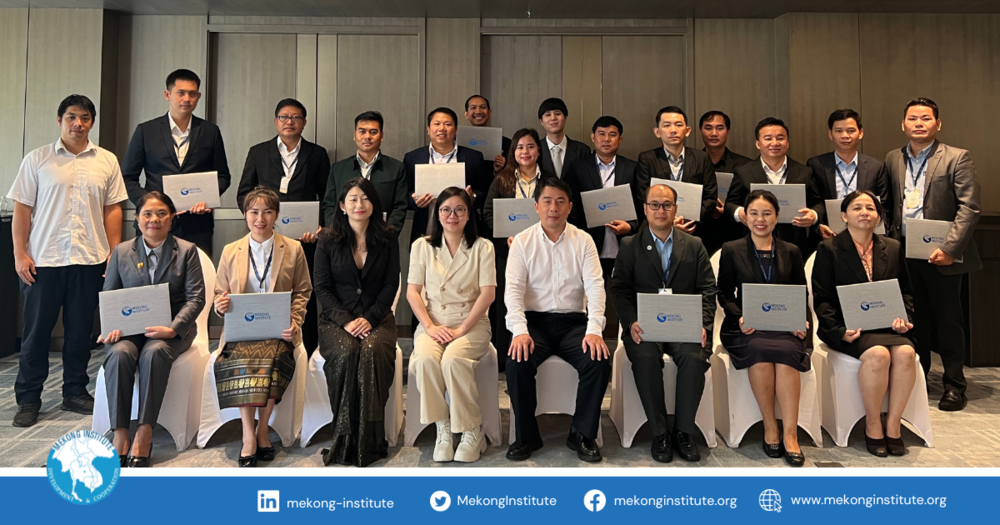As part of the broader goal of fostering regional cooperation and knowledge exchange within the energy sector, Mekong Institute (MI) and the Guangxi Power Grid Co., Ltd. (GXPG) co-hosted a regional training on “Promoting Greater Energy Connectivity for Equitable Development in the Lancang-Mekong (LM) Region,” in Nanning City, Guangxi Zhuang Autonomous Region, People’s Republic of China (China) on November 6-10, 2023.
Supported by China, the regional training engaged 17 participants including government officials and power utility workers from Cambodia, Lao PDR, Myanmar, and Thailand. The training offered participants a foundational understanding of the concept of energy connectivity for equitable development, technical aspects of and ways forward in energy transition, comprehensive energy service, and power market in the LM region.
Ms. Huang Min, General Manager of GXPG’s Emerging Business Department, expressed gratitude to MI and the participants for providing GXPG with the opportunity through the training to contribute to advancing energy connectivity in the LM region.
In her opening speech, Ms. Jian Wang, Program Manager of MI’s Sustainable Energy and Environment Department, emphasized the significance of innovative energy solutions and energy connectivity in addressing the increasing demand for energy and mitigating the impacts of climate change in LM countries. She thanked the Chinese Government and GXPG for their support. Wang stated, “Energy connectivity can catalyze the expansion of sustainable energy solutions in the region. By connecting power systems across borders, countries can access a wider range of renewable energy resources like solar and wind.”
In a post-training interview, participants from Thailand, Cambodia, and Myanmar discussed key aspects of regional energy infrastructure development. Ms. Wachira Jitpranee, Plan and Policy Analyst of Thailand’s Energy Policy and Planning Office, highlighted the LM region’s geographic potential for energy connectivity, emphasizing the importance of prioritizing main infrastructures as a stable power supply backbone.
Mr. Kaing Samedy, Chief of Section of Cambodia’s Electricite du Cambodge (EDC) shared about the challenges in the electric power system, stressing the need for time, resources, and expertise for seamless power connections in the LM region. He pointed out the dependence of certain countries on external aid for system restoration. As an example, he noted that Cambodia still relies on Viet Nam as a power source due to insufficient resources and capabilities for independent production. Addressing these challenges will require a concerted effort to enhance regional cooperation and build local capacities.
Mr. Naung Win Htoo, Assistant Director of Myanmar’s Electric Power Planning Department, emphasized the need for transparent communication about the challenges and benefits of cross-border projects, stressing the significance of public engagement and awareness in meeting the region’s energy needs.
The training comprised five structured modules, with the initial four adopting a lecture-based approach. The fifth module featured learning visits to three sites, allowing participants to gain practical insights into the operations of the GXPG.
Participants were tasked with implementing action plans in their respective home countries. The organizing team guided the drafting of these plans using project management principles, with the implementation expected to be completed within three months after the training. MI will conduct a follow-up online session and a synthesis evaluation workshop early next year to further support the participants in their endeavors.
The training fostered collaboration and equipped participants with valuable insights to contribute to the advancement of the LM region’s energy sector.








